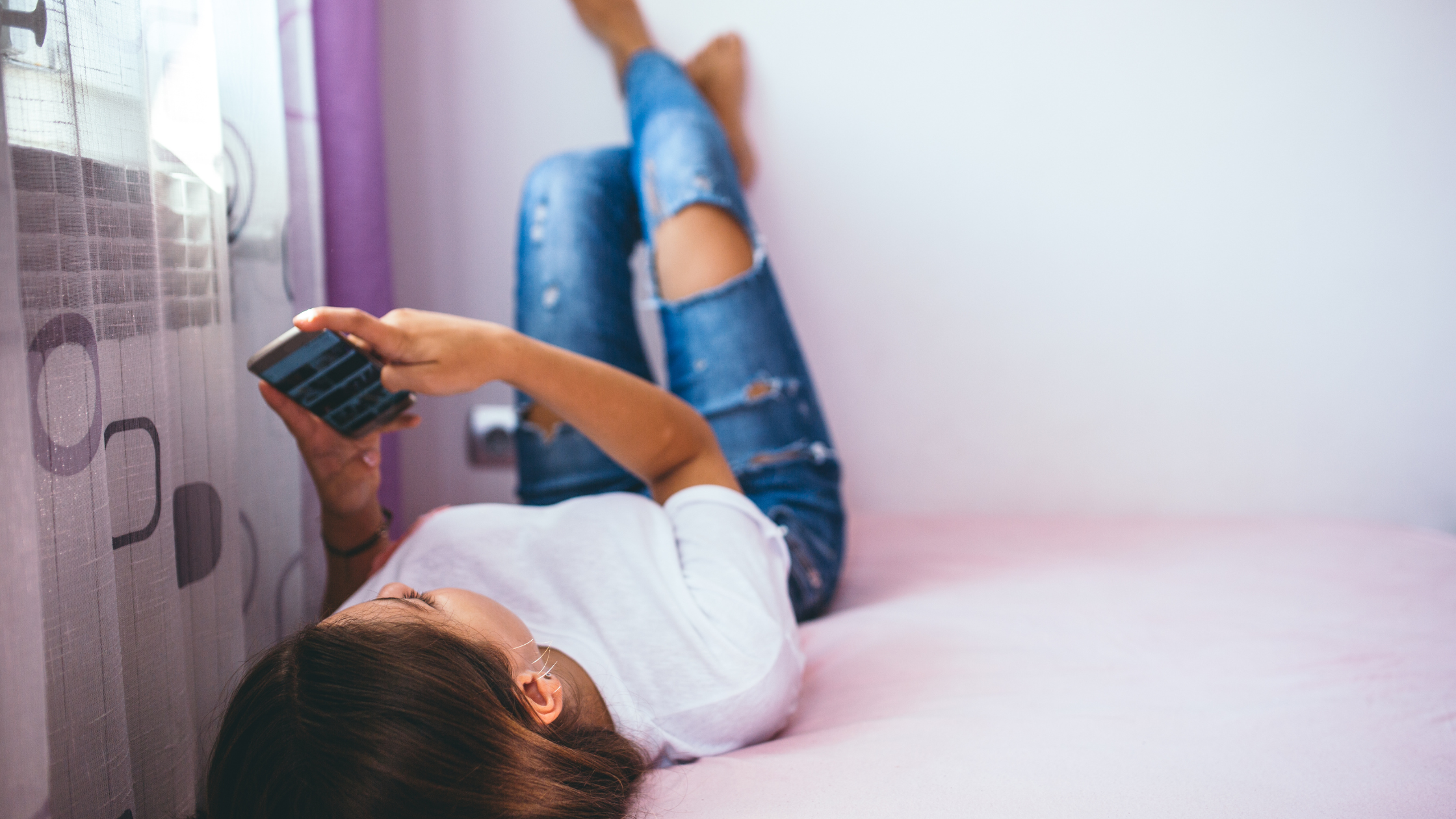Welcome to the Dark Side: The Truth About Social Media

By Ella Wolske
According to Statistica, there were 4.59 billion users on social media worldwide and they project it will continue to grow in the years to come. There are many positives to social media. It is able to share information quickly and helps connect billions of people across the world digitally, but it appears to be a double-edged sword. When it comes to mental health, social media can play a negative role. Shown below are a few impacts that social media has on users, which overall play a role in impacting a person’s anxiety and depression levels.
Statistics
Since social media usage has been growing rapidly in the past few years, there have been multiple surveys done regarding the impact social media usage has had on mental health. Back in 2019, a survey by JAMA, a medical journal, stated that teens that used social media for more than 3 hours each day were more likely to have problems with mental health, such as anxiety and depression.
A more recent survey from Springer Link in 2021, found that girls, thirteen years old or older, had a higher clinical risk of suicide as adults if they used social media for two hours or more each day.
Social Media is Addictive
Social media is a reinforcer. Every ‘like’ or ‘follow’ on your social media account releases dopamine, a “feel-good chemical” that is linked to pleasure. However, these feelings can also create stimulating effects, similar to addiction. “Once the brain experiences these rushes of dopamine and pleasure, the high from social media becomes harder and harder for anyone to resist, creating patterns of addictive behavior” (Miller).
FOMO
The “fear of missing out” or “FOMO” happens when we feel as if others are having good experiences without us. Although this feeling doesn’t exclusively happen on social media, scrolling through social media and people’s highlight reels can set us up for experiencing it. Because social media is a catalyst for experiencing this behavior, the more you are engaged in social media use, the more FOMO you are going to experience compared to those who do not use social media as intensely. The effects of FOMO have a mental and physical effect. Those who experience this can feel more stressed and may be likely to have sleep problems as well.
Cyberbullying Through Social Media
Through social media, communication can be done quickly and at times, anonymously. Cyberbullying has become a big issue with social media becoming more prominent in society. Around 10% of teens report being cyberbullied on social media. When people are hiding behind a screen, it may seem easier to spread hurtful rumors, lies, and abuse, but it plays a role in many users’ mental health when experiencing these things.
Social Media’s Isolation Effect
A study at the University of Pennsylvania found that social media usage increases feeling of loneliness. With social media, everything is done behind a screen, which limits face-to-face interactions. In-person human contact has significant benefits for our mental and physical health and helps regulate our response to stress and anxiety. When we limit this interaction, we don’t have as much regulation, causing our stress levels to increase. Although we may feel more connected to the world around us on social media, we may substitute face-to-face interactions with online meetups instead. With more virtual updates, this can lead to social withdrawal and alienation.
My Experience with Social Media
As a young adult growing up in the age of technology, I have experienced both the negative and positive effects of social media. On the one hand, I have enjoyed taking advantage of the communication benefits it provides. However, on the other hand, I knew I needed to set strong boundaries in order to not get sucked into the addictive and negative mindset that social media can bring. In order to ensure that my experience with social media is healthy, I have set time limits for all apps in order to stop myself from endlessly scrolling as hours pass. Setting these restrictions on my phone has allowed me to not only have overall less screen time, but has also helped me put more focus on face-to-face interactions than those through the screen. However, I am not perfect and have, at times, overridden the time limit I set for myself and continue scrolling. This is not a daily occurrence, but I recognize that there is area for improvement.
In college, my relationship with social media has been more negative than positive. Even with the time limits, I have found myself comparing myself to others and struggling with self-esteem. When I am struggling, I decide to fully delete the app from my phone, so it no longer has influence over my mindset on how I view myself. Although I am in high spirits now, I know this can fluctuate from week-to-week as I continue to experience new things and grow. However, something that I need to remind myself while on social media is that what others post on is just their highlight reel and it does not depict everything that is going on in their life. It does not mean that everything is picture perfect.
Tips Regarding Healthy Social Media Usage
Although social media can be negative, it doesn’t have to be if used in a healthy way. Here are some tips:
- Limit your time usage – Studies show that people who limit their social media time to 30 minutes each day report being happier. An easy way to do this is to set limits using the screen time function on your phone.
- Be intentional – It is easy to get caught on auto-pilot while scrolling through social media, but practice being mindful and not just doing it to pass the time.
- Put your mental health first – Before you open a social media app, check-in with yourself and see how you are feeling. If you are feeling down, it may be best to go outside or grab coffee with a friend rather than being online. If notifications are making you stressed or anxious, it may be smart to disable notifications or delete the social media apps from your phone.

Gabriella (Ella) Wolske is a Senior at the University of South Carolina. She is a student at the Darla Moore School of Business, majoring in Marketing and Management, with a minor in Psychology, and an emphasis in Data Analytics. Ella currently serves as President of Mental Health Ambassadors and is a member of the Mental Health Special Interest Group of Changing Carolina Peer Leaders, a group at her University that gives presentations and organizes initiatives and events across campus. Ella prioritizes her self-care in her day-to-day life and enjoys journaling and hiking in her free time. As a Nine out of Ten Ambassador, she will help create a message of hope for young adults.
References
“Associations Between Time Spent Using Social Media and Internalizing and Externalizing Problems Among US Youth.” Jama Network, 11 Sept. 2019, https://jamanetwork.com/journals/jamapsychiatry/fullarticle/2749480.
“Is Social Media Causing Social Isolation?” Social Media and Social Isolation | Relationships Australia QLD, 20 Apr. 2022, https://www.raq.org.au/blog/social-media-causing-social-isolation#:~:text=Research%20shows%20a%20link%20between,a%20day%20on%20those%20sites.
Miller, Sarah. “The Addictiveness of Social Media: How Teens Get Hooked.” Jefferson Health – Greater Philadelphia & South Jersey Region, 2 June 2022, https://www.jeffersonhealth.org/your-health/living-well/the-addictiveness-of-social-media-how-teens-get-hooked#:~:text=%E2%80%9CSocial%20media%20platforms%20drive%20surges,when%20gambling%20or%20using%20drugs.%E2%80%9D.
- Dixon. “Number of Worldwide Social Network Users 2027.” Statista, 13 Feb. 2023, https://www.statista.com/statistics/278414/number-of-worldwide-social-network-users/#:~:text=Social%20media%20is%20an%20integral,per%20day%20on%20social%20media.
Sherrell, Zia. “Social Media and Mental Health: Depression and Psychological Effects.” Medical News Today, MediLexicon International, 15 Sept. 2021,
https://www.medicalnewstoday.com/articles/social-media-and-mental-health.
“Social Media and Mental Health.” HelpGuide.org, https://www.helpguide.org/articles/mental-health/social-media-and-mental-health.htm#:~:text=However%2C%20multiple%20studies%20have%20found,about%20your%20life%20or%20appearance.m
“7 Healthy Habits for Social Media.” Cone Health, 18 Aug. 2022, https://www.conehealth.com/services/behavioral-health/7-healthy-habits-of-social-media/.



